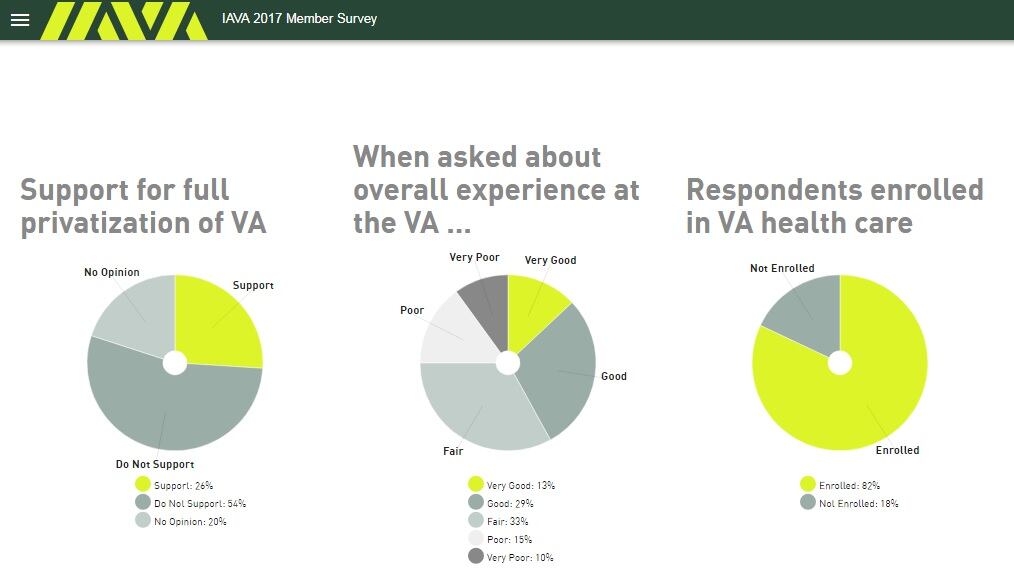More than half of Iraq and Afghanistan Veterans of America members know a post-Sept. 11 service member who has committed suicide, a figure that has climbed dramatically in recent years and underscores continued problems with young veterans and mental health care.
The findings are part of the group’s annual membership survey, which drew responses from roughly 4,300 individuals on a host of post-military challenges, political priorities and social issues.
While the findings don’t speak for the entire generation of Iraq and Afghanistan War veterans, they do offer a snapshot of the challenges many younger veterans face. Among group members, 58 percent said they know a fellow post-Sept. 11 veteran who died by suicide, and nearly two-thirds said they know one who attempted.
Both of those numbers have climbed about 18 percent since the group’s 2014 membership survey. IAVA Research Director Jackie Maffucci called it “a dire situation” for the community.
“The trend lines are going up, which clearly indicates how much work we have to do in this area,” she said.
In addition, more than one-third have had suicidal thoughts.
About 20 veterans each day nationwide commit suicide, according to Department of Veterans Affairs statistics. VA Secretary David Shulkin has called the issue his top clinical priority, and department officials have shifted resources in recent years to combat the problem.
Suicide prevention has also been a key policy focus for IAVA, in large part because of similar concerns about the issue in past membership surveys.
Among respondents, 82 percent said they have received some health care services through VA, a much higher figure than the roughly 40 percent of veterans nationwide who regularly receive department medical care.
But only 16 percent of members surveyed said they believe troops and veterans get the care they need for mental health injuries.
Among the reasons why, members most frequently listed the stigma of seeking those type of treatments, challenges getting appointments and a lack of quality care options.
Maffucci said one positive note on mental health issues from the survey is that many of her group’s members seem willing to seek out professional help for their struggles.
More than half of veterans who responded said a friend or family member suggested looking into medical help for undiagnosed mental health issues. Of that group, 80 percent said they followed the advice.
“It really highlights the role of families and their support system in helping individuals either recognize they have a problem or take that step and walk through the doors,” she said. “And that is such a challenge for so many veterans.”
The group’s overall view of VA services is mixed. About 42 percent rated VA services as good, and 13 percent as very good. But 25 percent rated them as poor, and 10 percent as very poor.
The full survey results are available on the IAVA website.
Veterans dealing with mental health issues can contact the Veterans Crisis Line around the clock at 1-800-273-8255 (select option 1 for a VA staffer). Veterans, troops or their family members can also text 838255 or visit VeteransCrisisLine.net for assistance.
Leo covers Congress, Veterans Affairs and the White House for Military Times. He has covered Washington, D.C. since 2004, focusing on military personnel and veterans policies. His work has earned numerous honors, including a 2009 Polk award, a 2010 National Headliner Award, the IAVA Leadership in Journalism award and the VFW News Media award.




